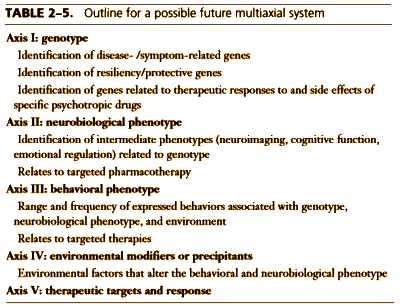![Gregor Mendel [1822-1884] Gregor Mendel [1822-1884]](http://1boringoldman.com/images/mendel-1.gif)
 Gregor Mendel was an Augustinian Monk in Moravia whose studies of plant inheritance brought such things into the realm of science. My sister’s blue eyes meant that both of our brown-eyed parents carried recessive blue-eye genes. The postman was out of the picture. Mendel’s schemes of inheritance were like that – very precise statistical predictions based on dominant genes. Things stayed pretty clean through Watson and Crick’s images of the double helix DNA structure, even Nirenberg’s nucleotide code sequences. But then things got out of hand – the Genome…
Gregor Mendel was an Augustinian Monk in Moravia whose studies of plant inheritance brought such things into the realm of science. My sister’s blue eyes meant that both of our brown-eyed parents carried recessive blue-eye genes. The postman was out of the picture. Mendel’s schemes of inheritance were like that – very precise statistical predictions based on dominant genes. Things stayed pretty clean through Watson and Crick’s images of the double helix DNA structure, even Nirenberg’s nucleotide code sequences. But then things got out of hand – the Genome…
That’s something I said this time last year in a post criticizing Dr. Insel’s NIMH and his funding priorities. It was after the Psychiatric Genomics Consortium report: Biological insights from 108 schizophrenia-associated genetic loci. I’m not competent to judge these "big data" studies coming from genomic research, but I am competent to complain that the NIMH isn’t looking into the plight of our psychotic patients living in prison – and that’s what I was addressing in those posts. I was looking for balance from the NIMH [in vain, I might add].
This week, psychologist Jay Joseph who writes on Mad in America, adds [Are DSM Psychiatric Disorders “Heritable”?] to his series of posts [the list] and books [The Gene Illusion: Genetic Research in Psychiatry and Psychology under the Microscope, The Missing Gene: Psychiatry, Heredity, and the Fruitless Search for Genes, The Trouble with Twin Studies: A Reassessment of Twin Research in the Social and Behavioral Sciences] challenging the psychiatric research and perspective on the genetics of mental illness. While looking over his posts, I came across one in particular that I’ve wanted to say something about for a while – DSM-5’s “Speculative” 2002 Diagnostic System Based On Expected Gene Findings. He’s referring to a book [A Research Agenda for DSM-V] that I think has been too quickly forgotten. The book was published in 2002 edited by David Kupfer, Darrel Regier, and Michael First but had multiple contributers. Kupfer and Regier later became the co-chairmen of the DSM-5 Task Force. The premise of the book was that the previous DSMs had been based on descriptive criteria [atheoretical], and that it needed to be revised to include the biological bases for the various disorders. Jay’s post is pointing to a scheme in that book speculating about classifying mental disorders based on their genotypes:

At the time this was written, we didn’t know that any major mental condition was either biologic or genetic – though there was suggestive indirect evidence for some. We certainly had no clue about any genotypes. This book introduced a series of [extensive and expensive] symposiums funded by the APA and the NIMH to pursue the outlined agenda [see DSM-5 retrospective I…]. This enterprise – the book and the symposiums – was quite a reach beyond the DSM-III and DSM-IV. It aimed to move away from Spitzer’s reliability to the elusive dream of validity. And it made a broad assumption of biologic causality, not as a hypothesis, but as an as-yet-unconfirmed fact – at least that’s how it sounded to me.
I didn’t read that book until a few years after it was published and the symposiums had been completed, but all I could think about while reading it was why they ever thought they could make a leap of that magnitude between 2002 and 2010, or even come close. Why climb out on that limb? The only thing I could think of was that it was conceived around the time that the Human Genome Project was nearing completion, and they genuinely thought that locating the genotype of psychiatric syndromes would a snap. Further, looking at that Table 2-5, they were laying out a path of discovery and the discoveries to follow that was pretty specific – what kind of genes they were going to find and where they were going to be headed with this cascade of future findings – particularly in relationship to "targeted pharmacotherapy." As we now know, this enterprise was a definitive and very public flop. They had to admit defeat in March 2011 [Neuroscience, Clinical Evidence, and the Future of Psychiatric Classification in DSM-5] and abandon the grand plan.
"In A Research Agenda for DSM-V, we anticipated that these emerging diagnostic and treatment advances would impact the diagnosis and classification of mental disorders faster than what has actually occurred."
DSM-V promises to be the state of the art in terms of psychiatric diagnoses, and when it was initiated we anticipated that this iteration of the DSM would incorporate biological markers and laboratory-based test results to augment the historical and phenomenologic criteria that traditionally are used to establish psychiatric diagnoses. Sadly, this has proved to be beyond the reach of the current level of evidence for incorporating into this version of the DSM, and it appears that psychiatric diagnoses, which may be rearranged, consolidated, and modified in some ways, will still be based predominantly on symptomatic and historical criteria. However, I am here to tell you that the time is not far off in the future when psychiatric diagnoses of mental disorders and behavioral disturbances will be aided by laboratory-based tests, and this will mark a milestone in the evolution of psychiatric medicine and will occasion an enormous transformation in the accuracy and the reliability of psychiatric diagnoses…
Finally, genetic testing will also come into play. As you probably know, commercial companies already are marketing DNA testing. They provide a "readout" of your genotypes for all of the known coded human genes along with associations with specific diseases in the different organ systems that these correspond to, to the best level of evidence that currently exists. These are not accepted as medically validated and are not used routinely in clinical practice but there is no reason psychiatry cannot begin to use these as other fields of medicine have done. Because all mental disorders will almost certainly prove to be polygenic or multigenic, we will need a gene profile to utilize in term of diagnostic information….
I’m not competent to vet Joseph Jay’s science. He seems to be aiming towards the conclusion that there is no genetic loading in Mental Illness which feels to me like an overstated polemic, though I’m not knowledgeable enough to judge with conviction. But I have absolutely no trouble at all thinking that Dr. Lieberman’s alternative, "all mental disorders will almost certainly prove to be polygenic or multigenic" is currently indefensible at face value – particularly after the decade long attempt that followed A Research Agenda for DSM-V. I don’t know of any findings since that book was released that justifies the not-quite-yet just-around-the-corner attitudes still prevalent in the ranks of the NIMH and much of academic psychiatry. They talk as if these now aging hypotheses from that book are still elusive truths in need of confirmation, rather than wishful thinking that has become increasingly unlikely with each passing study. The certainty implied by Dr. Lieberman here [there and everywhere], or Dr. Insel’s certainty with his RDoC or his sponsorship of the Clinical Neuroscience meme [and curriculum project – see the talk that matters…] has outlived credibility.
 I was excited by the Genome Project too. I think I was as naive as the next guy, thinking it would be a cornucopia of answers. It has turned out to be a first step in a new ballgame we don’t even know how to play – more Sputnik than Star Trek. But it is what it is. It’s a long way around this corner, and we have no clue what we’ll find there. If I had some sermons to preach about all of this, one would be that it’s high time to get all of this out of the guild wars. We’re spending a lot of money and brain power fighting the battle of the guilds, psychology vs psychiatry vs other, and that’s not going to lead us anywhere worth going. This isn’t about guild legitimacy, it’s about Mental Health. But my loudest sermon would be about research funding, particularly by the NIMH. This whole business of special areas that get high priority in funding hasn’t panned out. "Translational Science" didn’t work for mental health as evidenced by how little there has been to "translate." Tom Insel and his staff have no special knowing about what directions we need to move in, and that’s been proven to everyone’s satisfaction. We need to open up the NIMH to our investigators and see what they can come up with on their own, rather than asking them to follow directions set from above.
I was excited by the Genome Project too. I think I was as naive as the next guy, thinking it would be a cornucopia of answers. It has turned out to be a first step in a new ballgame we don’t even know how to play – more Sputnik than Star Trek. But it is what it is. It’s a long way around this corner, and we have no clue what we’ll find there. If I had some sermons to preach about all of this, one would be that it’s high time to get all of this out of the guild wars. We’re spending a lot of money and brain power fighting the battle of the guilds, psychology vs psychiatry vs other, and that’s not going to lead us anywhere worth going. This isn’t about guild legitimacy, it’s about Mental Health. But my loudest sermon would be about research funding, particularly by the NIMH. This whole business of special areas that get high priority in funding hasn’t panned out. "Translational Science" didn’t work for mental health as evidenced by how little there has been to "translate." Tom Insel and his staff have no special knowing about what directions we need to move in, and that’s been proven to everyone’s satisfaction. We need to open up the NIMH to our investigators and see what they can come up with on their own, rather than asking them to follow directions set from above.
Genomic information doesn’t necessarily translate to improved treatments. Exhibit A for that problem is Huntington’s Disease. The chromosomal locus of HD was established over 30 years ago and the feature of expanded triplet nucleotide repeats was identified about 10 years after that yet, aside from genetic counseling, the management of HD hasn’t changed at all. The crucial missing link is pathophysiology. Without that link, targeted new treatments are impossible. The translational failure in HD isn’t for lack of trying or for lack of money being thrown at the problem.
As for laboratory tests and biomarkers in psychiatry, these are the servants of clinical science, not the other way around. The existence of a psychiatric disease – or of any disease – is not predicated on having a laboratory test for it. Rather, the laboratory tests are developed in response to the recognition of a disease, and they are not the automatic gold standards that Insel and Lieberman or Kupfer and Regier seem to think they are. Clinical laboratory disciplines are constantly updating consensus biomarker criteria for what Insel et al seem to think are settled matters, such as diabetes mellitus and epilepsy.
When Jeffrey Lieberman says that DSM-5 did not adopt biomarkers because that was “beyond the reach of the current level of evidence” he simply echoes the conceptual failure of the American Psychiatric Association over 35 years. By the early 1980s a few biomarkers (neuroendocrine and sleep EEG) for melancholic depression had appeared that performed comparably to many common medical laboratory tests. These could have been adopted and refined, as happens all the time in general medicine. Instead, the APA and NIMH chose not to do that because they didn’t understand the fundamental difference between diagnosing a case and defining a disorder. They also didn’t understand the basics of Bayesian probability theory in the clinical application of biomarkers. More on that here. So, they became foolishly hung up on the red herring issue of absolute specificity of candidate biomarkers, unlike their peers in general medicine.
Given this record, I would not trust Insel or Lieberman or Kupfer or Regier to get the field back on track with biomarkers of psychiatric diseases.
Emotional distress is not reducible to discrete reliable disorders, nor do genes and the environment interact in a way that would allow specific patterns of distress to be linked to specific genes, as Jay Joseph discusses.
With the continuing failure to find genes causing “mental illness”, the narrative of genes causing emotional distress is doomed to collapse just as the Titanic was destined to hit the seabed after impacting the iceberg. It’s just hard for psychiatric leaders to admit that something that seemed so promising was full of nothing. There will be no “getting back on track with biomarkers of psychiatric diseases” for the field of psychiatry, contrary to what many psychiatrists might hope for.
The collapse of the genes-causing-mental-illness narrative is also being resisted because it will damage drug companies’ profit-building distortions about biological and genetic factors causing “mental illness”, and it will result in reduced prestige and income for many psychiatrists.
Exhibit B would be Rett’s Disorder, which was ironically booted from DSM-5 BECAUSE a specific cause was found, and this seems to go against everything they were talking about:
http://ghr.nlm.nih.gov/condition/rett-syndrome
So what they are saying and what they are doing when the rare genetic marker appears are completely contradictory.
This is another example of genetic discovery not leading to improved treatment. Huntington’s treatment research would some to be more promising since you at least have a healthy interval before the latent disease strikes to theoretically initiate some kind of sense/antisense (or whatever works) treatment.
I’ve come to conclude that what irks me about these spokespeople is the relentless overselling of things that rarely pan out. They remind me of permabull stock analysts on CNBC telling viewers why they should buy the hot tech stock with no earnings and little revenue but huge potential.
James mentions “the relentless overselling of things that rarely pan out. They remind me of permabull stock analysts on CNBC telling viewers why they should buy the hot tech stock with no earnings and little revenue but huge potential.” In turn, that reminded me of Richard Feynman’s Cargo Cult Science commencement speech at Caltech in 1974 – it’s still a classic.
Seems unrealistic over promising hype is everywhere in medicine this century:
http://stm.sciencemag.org/content/7/278/278ps4.full
I was telling people 10 years ago stem cell research was not ready for prime time and decades away at best from providing treatments. Bill Gates was all for it and behind a California funding initiative that passed. But when Bill Gates REALLY likes an idea, he backs it with his own money, not the public teat.